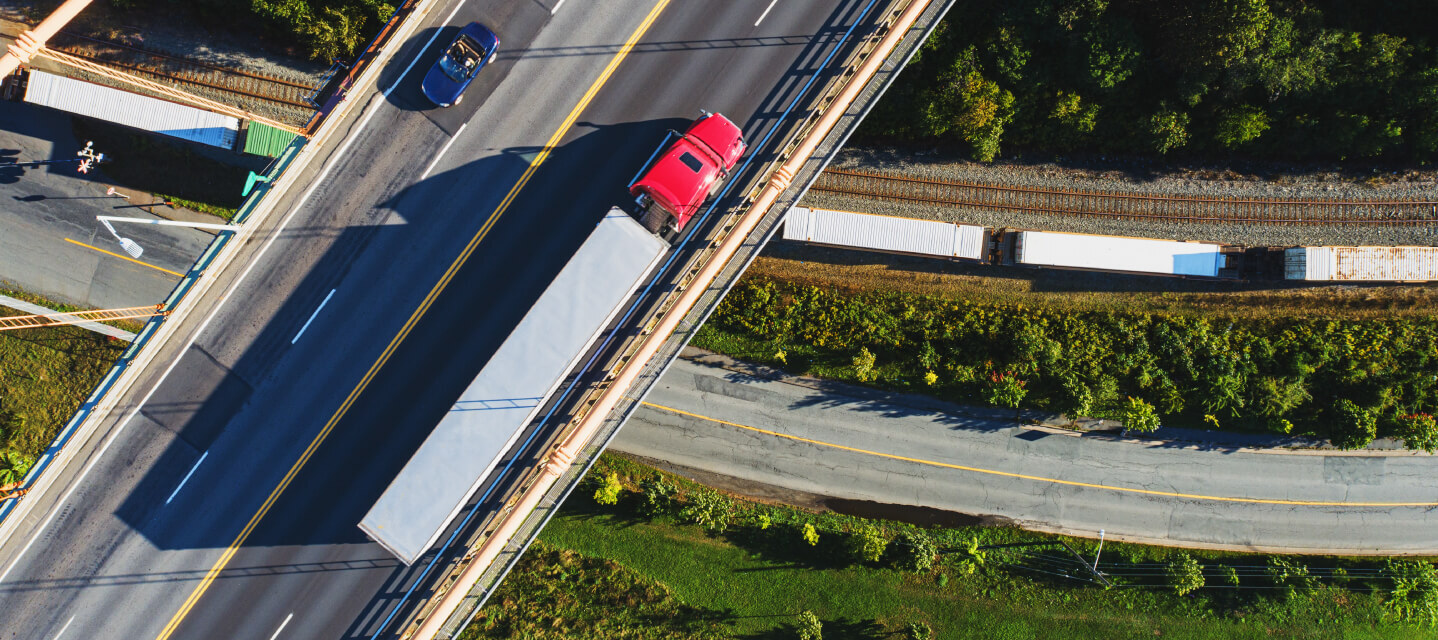Slash fleet costs: Key strategies for a stronger police budget
Shield your police budget by improving fuel efficiency, vehicle health and decision-making.

Oct 14, 2025

Key Insights
- Protect your police budget by keeping fleet costs in control and staying ahead of risk
- Reducing costs helps you stay accountable, build public trust and invest funds into other key areas of operations
Managing a police budget is a high-stakes game of strategy where every dollar counts, and proper allocation directly impacts public trust and your ability to do your job well. But where can you drive savings, without cutting personnel costs? A study revealed that on average, personnel expenses made up 85% of surveyed departments’ budgets. To help your agency protect this vital budget category, it’s crucial to reduce waste in other areas, such as your police fleet.
In this blog post, we’ll show you how to save money through data-driven fleet management. We’ll demonstrate how Geotab provides a big-picture view of all your police fleet’s operations, so you can implement cost-saving measures, assess their impact and reserve funds for more strategic needs.
These four pillars represent the core ways that Geotab can be a critical support system for your police budget. Read on to learn more about how our solution makes cost-efficient policing easier.
Don’t let the fuel pump guzzle your police budget
Are you spending too much on fuel? With the unpredictability of daily operations, it can be an ongoing challenge to know what your department’s true consumption is and budget effectively. But with Geotab’s Sustainability Center, you can gain rich insights into fuel usage trends, emissions and electric vehicle (EV) opportunities across your whole fleet. Think of it as your one-stop shop for monitoring and reducing fuel consumption.

A screenshot of the Sustainability Center, which allows you to track emissions intensity, fuel economy, trends and other powerful insights.
Here are key ways to reduce fuel costs with Geotab:
Cut unproductive idling - Keep fuel consumption in check by tracking unproductive idling events and emissions. Set custom zones around department buildings to get alerted if idling is taking place within them and coach officers on efficient fuel usage.
Minimize high-consumption driving habits - Driving behaviors like speeding, quick acceleration and hard braking aren’t just unsafe; they’re also sneaky drainers of your fuel budget. At highway speeds, aggressive driving can decrease fuel efficiency by 15-30%, and 10-40% in heavy traffic. Save on fuel by monitoring harsh driving events and encouraging officers to limit them as much as possible.
Adopt electric police vehicles - Drive savings by identifying the vehicles that are costing your department the most on fuel and replacing them with EVs. EVs can also help you save on maintenance, since they usually have fewer moving parts than internal combustion engine (ICE) vehicles. Use fleet data to see where EVs can fit into your operations and cut back on costs.
In addition to consumption, it’s important to look at the payroll costs that fuel reporting might be siphoning from your budget. Manual data retrieval is outdated and slow. This reality is leading many agencies to lean on AI to accelerate their reporting and get clearer insights.
For example, Geotab Ace™, an AI-enabled assistant, helps your department quickly track down specific fuel data. Ask it questions like these to get the insights you need, faster:
- Which vehicle has the worst fuel economy in gallons?
- What is my average fuel usage per 100 miles?
- How much did my fleet idle in X month, Y year?
With Geotab Ace and our fuel management features, you can determine your police fleet’s true fuel costs and develop new strategies to slash consumption.
Maximize police car performance and longevity
Maintenance and vehicle replacements are often the next largest culprits of police fleet costs. But what if you could combat these expenses and get more out of your current vehicles? With Geotab, you’re able to:
Delay vehicle replacements - Spot smaller vehicle issues early on and fix them before they become critical with predictive maintenance insights. Proactive, data-driven fleet maintenance helps you prevent breakdowns and extend vehicle lifespans, reducing the need to purchase new vehicles sooner.
Optimize maintenance schedules - Avoid costly over- and under-maintenance with automated maintenance reminders. From critical battery voltages to oil changes, Geotab’s custom rules engine allows you to set alerts for specific events, so nothing slips past you. Utilization data and engine hour insights also help you know exactly when to service police vehicles by showing you their true wear and tear.
Weigh the price of inaction - Detect engine faults and go deeper into what they mean with Fault Code Enrichment, powered by Noregon. By providing context into a fault’s severity, how it could impact other parts and recommending actions, this tool helps you smartly prioritize repairs and save more money.
Interested in learning more about data-driven maintenance? Check out our blog post to explore its top five benefits for police fleets.
Reduce operational risks, from the road to the cruiser
While fuel and maintenance are key costs to reduce, you also need to protect your police budget against liability. That’s because in modern law enforcement, risks are around every corner. From vehicle collisions to wrongful death suits, your department could be just one incident away from a costly verdict.
Geotab’s powerful risk avoidance tools can help you protect your officers and shield your budget from expensive payouts. Through rich fleet insights and AI, learn how data from our platform provides you with critical backup:
Slash collision risk - Monitor and reduce your fleet’s collision probability with AI-enabled Risk Analytics. This feature forecasts how likely it is for your fleet to experience a collision over its next 100,000 miles, so you can take action now to avoid incidents later.
Safeguard your investments - Prevent expensive vehicle damage by tracking high-risk driving events like speeding and brake-slamming. But don’t simply collect data on these events; gain critical perspective with Safety Benchmarking. This tool lets you compare your police fleet’s safety metrics against fleets with similar vehicle classes, vocations and driving patterns. Benchmarking allows you to see where you’re most exposed to risk, make improvements and measure progress.
Exonerate officers - While collision avoidance is key, incidents can still happen. And if accusations are made against your officers, you need an impartial witness to support them. Collision Reconstruction can indicate officers’ innocence and reduce liability through unbiased data. Show how fast an officer was driving, where the collision took place and where the impact point was to clear them of fault.

An example of Collision Reconstruction, which helps you see the precise time a detected collision took place, which vehicle was affected and more.
Avoid negligence lawsuits - Keep K-9s and those in custody safe during transport with cabin temperature monitoring integration. Plus, review data from past trips to make sure routing, driver behavior and vehicle inspection policies were adhered to by your team.
Simply reacting to operational risks leaves your budget unprotected. Use insights from Geotab to uncover the truth about your fleet operations, support officers and limit liability costs.
Optimize police fleet costs with smarter resourcing
Does your department struggle with knowing how large its fleet should be, or how often certain vehicles are used? Without data, these questions are hard to answer. But with Geotab, you can unearth key insights about your police vehicles and make smarter resourcing decisions. Use our platform to:
Balance police vehicle usage - Prevent vehicle favoritism by using fleet data to identify gaps in usage and equalize imbalances. Tracking mileage, days driven and time spent in pursuit helps you see which vehicles are over- or under-used, so you avoid premature replacements and save money.
Right-size your roster - Rely on utilization insights to determine if your police fleet is bloated and costing you more than necessary. If you’ve got a surplus of severely under-used vehicles, offload them to cut costs without impacting operations. For example, the State of Utah was able to reduce its police fleet’s size by 60 vehicles using our solution!
Streamline reporting: Make informed resourcing decisions with accurate, real-time fleet insights. Geotab helps you automate fleet reporting, so you can avoid manual entry errors, operating on bad data and the potential for costly rework.
With smarter resourcing, you can free up funds and channel them into other areas of your operations. The outcome: Greater flexibility and better public service.
Cut police fleet costs and be more strategic with Geotab
Amid rising scrutiny on how police budgets are spent, choose tools like Geotab that can help you save money and spend wisely. We’re aligned to your department’s mission of providing cost-effective, community-first policing, and best of all, our solution can scale with your department’s needs over time.
It’s time for a platform that works as hard to protect your budget as you do to serve the public. Talk to us about your department’s objectives today. We’d love to work with you on building a smarter, more efficient police fleet.
Explore our ebook to learn more about saving money through data-driven police fleet management.
Subscribe to get industry tips and insights
Frequently Asked Questions
Police departments can use Geotab to uncover cost-saving opportunities by monitoring fuel consumption, vehicle maintenance needs and collision risk. They’re also able to drive value in ways beyond the budget alone. Fleet insights like patrol histories, vehicle locations and driver behaviors help departments see where to allocate resources and coach officers on smarter habits. As a result, their operations are safer, and service to the public is more equitable.
Smartly spending public dollars helps your police department build trust by creating financial transparency. It also allows you to put more funds into other critical areas of operations, resulting in even better public service. Protect your police budget to show your community that your department truly cares about being a responsible steward of taxpayer money.
Public trust is key to generating community involvement, solving crimes and upholding safety for everyone. To learn more about building community trust, download our ebook.
Don’t sacrifice your department’s privacy needs just to reduce costs. Geotab is a leader in secure telematics. This means we’ll work with you to drive fleet savings without compromising your data. These rigorous measures help us safeguard your information:
- FIPS 140-3 validation
- Compliance with ISO/IEC 27001:2013 standards
- FedRAMP authorization
- Our Cyber Essentials certification
- SOC Type 2 attestation
- Granular access controls
- Regular audits and employee training
- Restricted data mode features built into our platform
Learn more about Geotab’s security stance by visiting this webpage.

Content Marketing Manager at Geotab
Table of Contents
Subscribe to get industry tips and insights
Related posts

Telematics trends for 2026: What is changing and how fleets can respond
January 30, 2026
6 minute read
Fleet GPS tracking systems cost: Full price breakdown and ways to boost ROI
January 30, 2026
6 minute read

Fleet operations: Key components, benefits and challenges
January 7, 2026
4 minute read
.jpg)
10 best fleet management software to boost performance and cut costs
December 22, 2025
8 minute read


The $4B Crisis: Video Intelligence as the Answer to Fleet Distraction
December 2, 2025
3 minute read